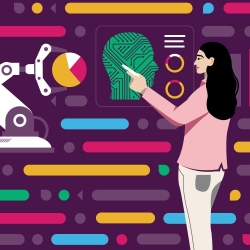August 22, 2023
Advancing accessibility and reaping the rewards of disability inclusion
 In business, companies have a responsibility to balance profit-driven strategies with wider social commitments. As well as being the right thing to do, a focus on the latter can invariably drive economic value. Companies that prioritise diversity, for instance, earn 2.5 times higher cash flow, while inclusive teams are 35 percent more productive. As a result, diversity in the workforce is now widely accepted to be both a moral necessity and a commercial opportunity, with more and more corporates incorporating DE&I policies into their operational frameworks. Despite this progress, the disability community is still largely excluded from these discussions around inclusion. (more…)
In business, companies have a responsibility to balance profit-driven strategies with wider social commitments. As well as being the right thing to do, a focus on the latter can invariably drive economic value. Companies that prioritise diversity, for instance, earn 2.5 times higher cash flow, while inclusive teams are 35 percent more productive. As a result, diversity in the workforce is now widely accepted to be both a moral necessity and a commercial opportunity, with more and more corporates incorporating DE&I policies into their operational frameworks. Despite this progress, the disability community is still largely excluded from these discussions around inclusion. (more…)











 Have you ever had the feeling that some of your colleagues are working only for themselves, and are not true team players? If your answer is yes, then it is possible that you are working with a narcissist. Narcissists have a heightened sense of what they are entitled to and have a constant need for attention and admiration. They are arrogant and see themselves as superior to others.
Have you ever had the feeling that some of your colleagues are working only for themselves, and are not true team players? If your answer is yes, then it is possible that you are working with a narcissist. Narcissists have a heightened sense of what they are entitled to and have a constant need for attention and admiration. They are arrogant and see themselves as superior to others. 


 A significant majority (85 percent) of employees feel like they are just a cog in the machinery of their organisation and 43 percent have no idea how their performance contributes to business success, according to a new survey of employee experience and expectations. According to the
A significant majority (85 percent) of employees feel like they are just a cog in the machinery of their organisation and 43 percent have no idea how their performance contributes to business success, according to a new survey of employee experience and expectations. According to the 















September 5, 2023
Working from home won’t last forever… will it?
by Zain Ali • Comment, Flexible working, Technology